

This is the message in today's Book Of The Day, "Purple Cow by Seth Godin.
Universal love is not possible in a world of seven billion people.
Even someone like Mother Theresa who devoted her life to caring for dying homeless children has her haters.
Christopher Hitchins wrote a critical book about her irreverently called The Missionary Position: Mother Teresa in Theory and Practice.
If a humanitarian like Mother Theresa isn't universally loved I am 10000% sure my crazy, eccentric self won't be either.
I think Warren Buffett in "The Snowball" has it right, “The purpose of life is to be loved by as many people as possible among those you want to have love you."
Buffett just wants lots of love from the small group of people he finds important. Even though the "Purple Cow" is meant to be a business book, I was struck by how it's also a book about romance and friendship.
If you study history it's clear that as a human you are best adapted to live in social circles of around 100 to 150 people. This is your 'tribe.' But there is a modern mismatch.
You now live in a world of seven billion people. And you probably live in a city with hundreds of thousands if not millions of people surrounding you - many more than the 150 people your brain is best adapted to living with.
And so we grow up trying to please too large of an audience. As children we are thrown into huge elementary and high schools (One of my high schools had 2000 students.) It creates massive stress because as a teenager you especially want to be universally accepted.
But how in the world could you get unanimous acceptance from 2000 students?
When I lived with the Amish I realized the genius of their one room school - just 50 kids of every grade all together. That is a group that's small enough for kids to all belong to one tribe without ostracizing anyone.
As we get older we continue to mistakenly set up our lives and businesses to appeal to everyone. This is one of the main reasons that Michael Gerber says in his E-Myth Revisited that 80% of new businesses fail within 5 years.
We try to build a global business that 99 out of 100 people will buy from. Sure Jeff Bezos at Amazon figured out how to do that. But for us mere mortals, it's simply too expensive to market to the masses - too hard to build a global brand these days.
You can't just advertise your way into people's hearts anymore. Godin says that of the top 100 brands like, Coca-Cola, Microsoft, IBM, GE, Intel, Disney, McDonalds, Nike, and Amex, that:
"Of these top one hundred, seventy are brands that were valuable in this country more than twenty-five years ago. Of these brands, virtually all were built with heavy advertising on television, in magazines, or at retail. These companies grew their brands back when it was easy and cheap to do it the old-fashioned way. These brands maintain their lead, blocking newcomers who don’t have the same vacuum to fill......just one of the companies on the list is the product of the last ten years of media excess.
Only AOL was able to spend hundreds of millions of dollars and convert that investment into a valuable brand. All the other companies that tried, failed.
So the question you need to ask yourself is this: If only 6 percent of the most valuable brands used the now-obsolete strategy of constantly reminding us about their sort-of-ordinary product, why do you believe this strategy will work for you?”
Seth Godin says instead that you should try to be remarkable to a small number of people. But remember, you will need thick skin to withstand the criticism of people outside your group.
Godin says:
"If you’re remarkable, it’s likely that some people won’t like you. That’s part of the definition of remarkable. Nobody gets unanimous praise—ever. The best the timid can hope for is to be unnoticed. Criticism comes to those who stand out."
The good news is that the reward for being remarkable to a small targeted group is high.
"The real growth comes with products that annoy, offend, don’t appeal, are too expensive, too cheap, too heavy, too complicated, too simple—too something. (Of course, they’re too too for some people, but just perfect for others.)"
The reason you can't focus on mass appeal is that in today's crowded world you can't just be very good anymore - you have to be remarkable. The catch-22 is that it's virtually impossible to be remarkable to everyone.
Humans have massively different tastes and preferences. Some love Rap music, some despise it. Some love their religion, some spit on religion. Some love to wear Crocs, some wouldn't wear them if they found themselves barefoot walking over lava.
Some people adore Justin Bieber and now some people have started a petition with the White House to deport him.
The petition says, "WE PETITION THE OBAMA ADMINISTRATION TO: Deport Justin Bieber and revoke his green card. We the people of the United States feel that we are being wrongly represented in the world of pop culture.
We would like to see the dangerous, reckless, destructive, and drug abusing, Justin Bieber deported and his green card revoked.
He is not only threatening the safety of our people but he is also a terrible influence on our nations youth.
We the people would like to remove Justin Bieber from our society."
I have no idea if they are serious (I think they actually are, haha.) All I know is that Bieber is laughing all the way to the bank. The more people hate him the more money and fame he earns.
Guys want to be him and women want to be with him.
Godin says, "Very good is an everyday occurrence and hardly worth mentioning."
This reminds me of so many aspiring actors and singers that stop by my home in Hollywood. I hear them sing or do their acting monologue for me and almost always I think, "Do you realize how competitive Hollywood is? You are just good, good won't get you anywhere in this town."
I dated a woman who almost won American Idol and she told me that her first audition was in the Orlando Stadium with 15,000 people auditioning. In one day they cut 15,000 people down to just her and one or two others!
To make it in life and in business you have to be, on a scale of 1 to 100, a 95 or higher in something.
You do not have to be a 95 or 100 in everything or even in something big. You just have to be a 95 to 100 in something that appeals to at least one targeted niche group.
When I do teach my mentor seminar I talk about the law of 18%. Your goal in business and social life should be to have just 18 out of 100 people who meet you or your business to fall in love with what you are doing. You actually want the other 82 people out of 100 to have no interest. That proves you are focused enough.
If you can simply get 18% of people to get excited you will be rich and happy.
Allan Nation told me once, "Tai the beauty of a world with seven billion people is that no matter what you want to sell, at least one million people will want to buy it."
Think about the TV show "South Park." Tons of people hate it. They think it's too vulgar and irreverent. But the people who love it, REALLY love it.
Success and happiness is often found on the fringes. Remember what the famous Aesop Fables taught:
"A Man and his son were once going with their Donkey to market. As they were walking along by its side a countryman passed them and said: 'You fools, what is a Donkey for but to ride upon?'
So the Man put the Boy on the Donkey and they went on their way. But soon they passed a group of men, one of whom said: 'See that lazy youngster, he lets his father walk while he rides.'
So the Man ordered his Boy to get off, and got on himself. But they hadn't gone far when they passed two women, one of whom said to the other: 'Shame on that lazy lout to let his poor little son trudge along.'
Well, the Man didn't know what to do, but at last he took his Boy up before him on the Donkey. By this time they had come to the town, and the passers-by began to jeer and point at them. The Man stopped and asked what they were scoffing at. The men said:
'Aren't you ashamed of yourself for overloading that poor donkey of yours and your hulking son?'
The Man and Boy got off and tried to think what to do. They thought and they thought, till at last they cut down a pole, tied the donkey's feet to it, and raised the pole and the donkey to their shoulders.
They went along amid the laughter of all who met them till they came to Market Bridge, when the Donkey, getting one of his feet loose, kicked out and caused the Boy to drop his end of the pole. In the struggle the Donkey fell over the bridge, and his fore-feet being tied together he was drowned.
'That will teach you,' said an old man who had followed them: YOU CAN NOT PLEASE ALL THE PEOPLE ALL THE TIME!"
In business and in your personal life, don't fall into that trap.
So what is the best way for you to become remarkable in something - the magic formula?
I think Warren Buffett says it best, “I learned that it pays to hang around with people better than you are, because you will float upward a little bit. And if you hang around with people that behave worse than you, pretty soon you’ll start sliding down the pole. It just works that way.”
I am giving a TED talk next month in Europe titled "How to Get Bill Gates, Warren Buffett, and the Dalai Lama to mentor you."
The premise of my talk is that to change your life you have to change your friends - change your environment.
That is why I am so big on reading a book a day. Reading is the easiest way to make world changing leaders your mentors from the privacy of your home (it's cheap too, most books I buy used for under $5 on Amazon.)
As I read biographies of the greatest people I see a commonality. They all focused on their narrow area of strength and turned that specific strength into a tribe of fans who loved them.
Whether you study, Jesus Christ, Mohammed, Caesar Augustus, Charles Darwin, Karl Marx, Freud, JFK, Gandhi, Rosa Parks, or Bill Clinton you see the same trend: Massive love from some and strong criticism from others. Yet each of them were successful in spreading their message.
They earned authentic love from their 'tribe.'
Warren Buffett says it best, "Basically, when you get to my age, you'll really measure your success in life by how many of the people you want to have love you actually do love you."
I know people who have a lot of money, and they get testimonial dinners and they get hospital wings named after them. But the truth is that nobody in the world loves them. If you get to my age in life and nobody thinks well of you, I don’t care how big your bank account is, your life is a disaster. That’s the ultimate test of how you have lived your life.
The trouble with love is that you can’t buy it. You can buy sex. You can buy testimonial dinners. You can buy pamphlets that say how wonderful you are. But the only way to get love is to be lovable. It’s very irritating if you have a lot of money.
You’d like to think you could write a check: I’ll buy a million dollars’ worth of love. But it doesn’t work that way. The more you give love away, the more you get.
So here are the practical takeaways for your life today:
1. For your personal life: Form a tribe of 100 or so people who are changing the world. Dump the rest even if they have been your friends for years.
2. For your business: Make a list of who you do NOT want to sell to. Most people focus on who they want to buy. Decide who you do not want to sell to. This will help you find your niche.
3. Become remarkable: Focus your life on narrow areas of expertise, specifically on things people have complimented you on since you were a little kid.
4. Prepare for criticism: Remember: "If you’re remarkable, it’s likely that some people won’t like you. That’s part of the definition of remarkable."
5. Focus on the law of 18%: Get 18 out of 100 people who meet you personally or for business to fall in love with you. Forget about the other 82. They can go join some other group.
COMMENTS
Best of Tailopez
-
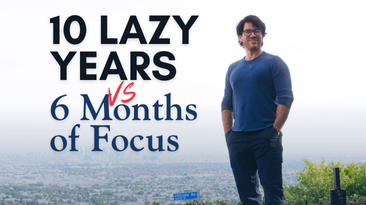 Ten Lazy Years Can Be Erased With Six Focused Months
Ten Lazy Years Can Be Erased With Six Focused Months -
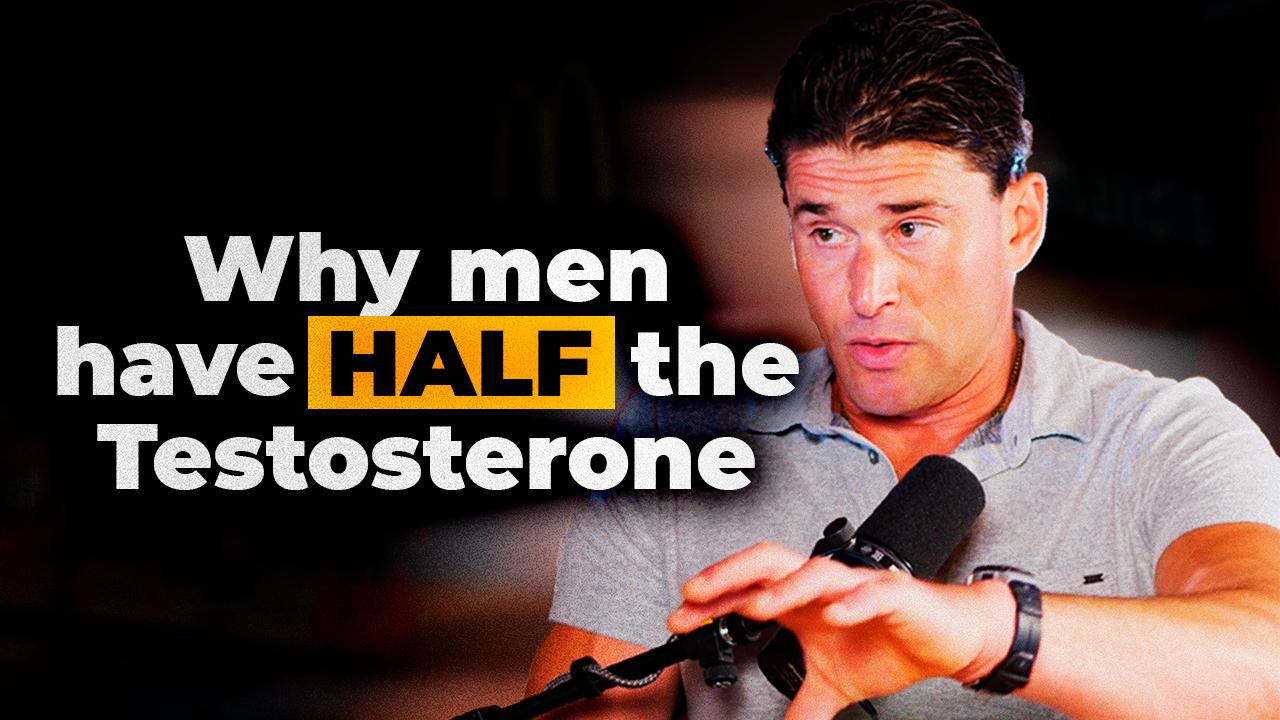 Why Men's Testosterone Is Half Their Grandfather's with Ben Greenfield
Why Men's Testosterone Is Half Their Grandfather's with Ben Greenfield -
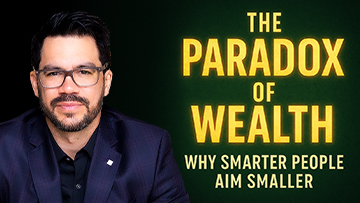 The Paradox of Wealth: Why Smarter People Aim Smaller
The Paradox of Wealth: Why Smarter People Aim Smaller -
 Mamma Mia in West Adams: Tai Lopez Finds LA's Pasta Holy Grail at Cento Pasta Bar
Mamma Mia in West Adams: Tai Lopez Finds LA's Pasta Holy Grail at Cento Pasta Bar -
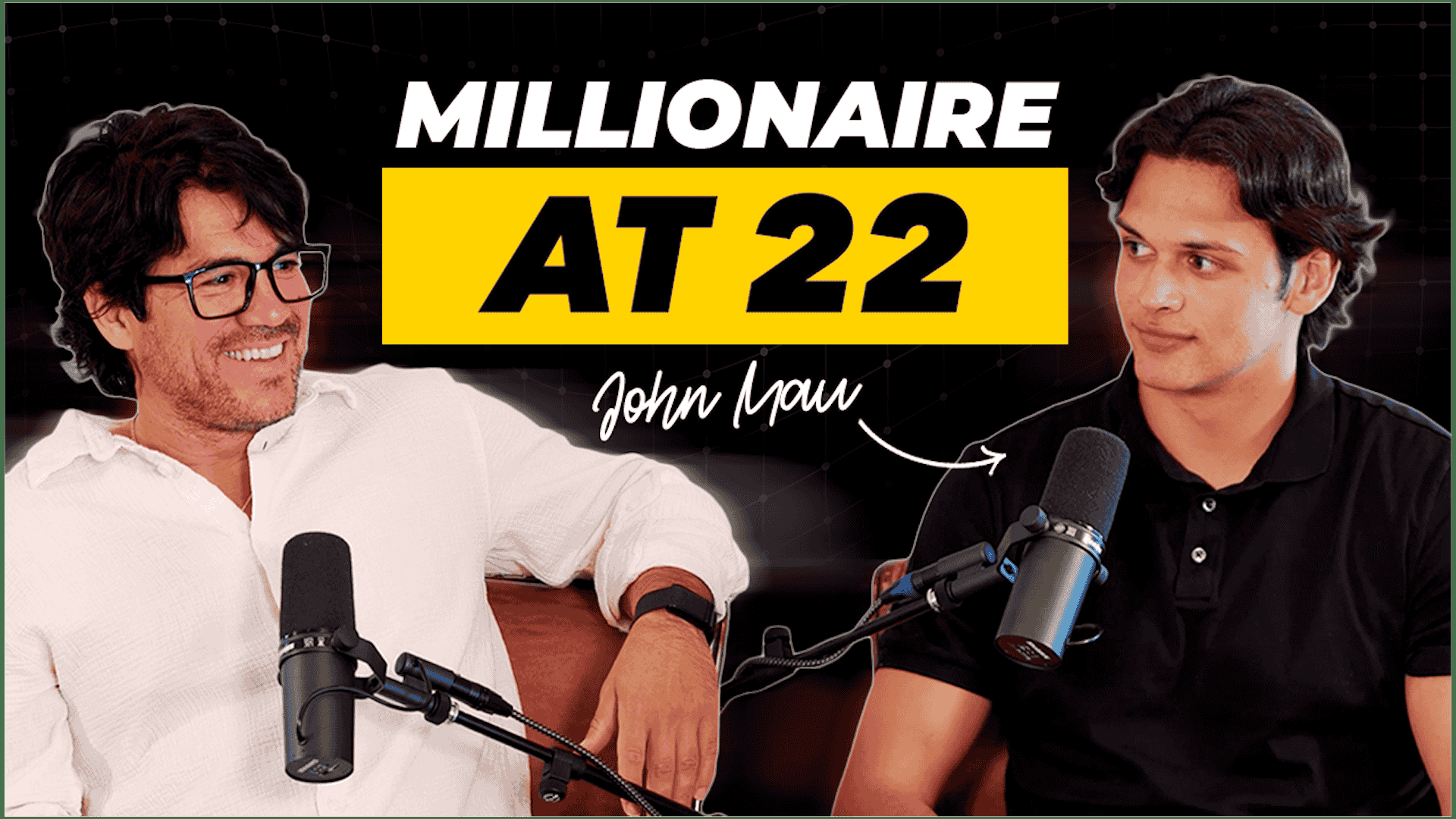 Sales Training, Scaling, and Breaking Objections: Tai Lopez with Johnny Mau
Sales Training, Scaling, and Breaking Objections: Tai Lopez with Johnny Mau

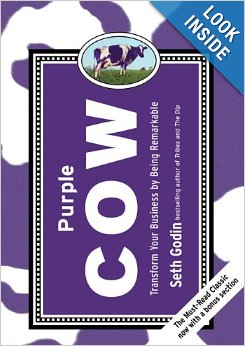
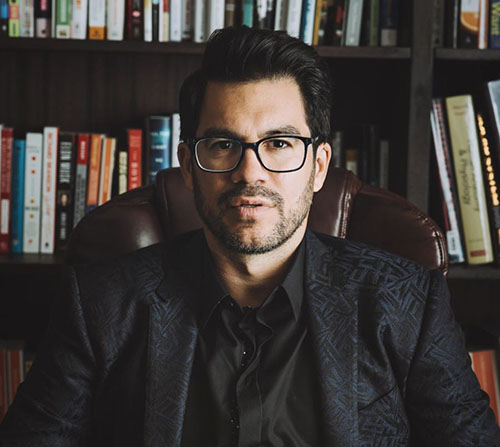
0 Comments